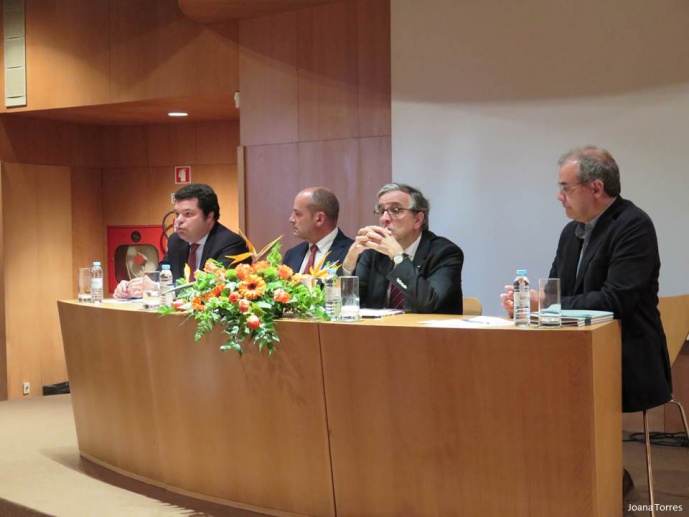REN CHAIR IN BIODIVERSITY

On May 8, 2015, the University of Porto (UP) and the Research Center in Biodiversity and Genetic Resources hosted an official ceremony to mark the signing of the collaboration protocol between the Portuguese Foundation for Science and Technology (FCT), the company Redes Energéticas Nacionais (REN) and UP, that will allow to set up a co-sponsored Invited Chair – REN Chair in Biodiversity.
Present in this event were CIBIO-InBIO’s Director, Prof. Nuno Ferrand de Almeida, REN’s Administrative Council President and CEO, Mr. Rodrigo Costa, and Executive Administrator, Eng. João Conceição, FCT’s Vice-President, Dr. Pedro Carneiro, and UP’s Rector, Prof. Sebastião Feyo de Azevedo.
Coordinated by CIBIO-InBIO, the REN Chair in Biodiversity, will seek to promote top-quality research, advanced training and knowledge transfer on topics of interest to both REN and UP, namely by bringing to Portugal specialists with highly prestigious profiles in the field of biodiversity.
The Invited Chairs Programme was launched by FCT on May 2008, as part of the Ciênciia 2008 initiative, with the purpose of fostering the international competitiveness of the Portuguese higher education institutions, reinforcing their networking and cooperation capacities. The establishment of the REN Chair in Biodiversity, which will receive an annual funding of € 160 000, supported on 75% by REN and on 25% by FCT, will create the proper conditions for the development of top-notch biodiversity research, especially in what concerns the impact of the activities carried out by REN. In addition, it is intended to put forth innovative advanced training and technology transfer projects. Overall, REN’s Chair in Biodiversity is structured according to three main dimensions:
- monitoring, mitigation and compensation of environmental impacts associated with the energy networks, especially in what comes to electric energy;
- population ecology studies that can provide a clear and assertive assessment of the demographic responses of species that are subject to non-natural mortality, aiming to identify the most relevant and effective measures of impact mitigation and biodiversity preservation; and
- citizen science projects that can contribute to raise awareness towards the importance of the research activity in this field,, by engaging common citizens in actual authentic projects leading to the collection of meaningful research data.
To know more about this issue, please follow the link below:
U.Porto e REN lançam Cátedra em Biodiversidade | Notícias UP | May 8, 2015 (in Portuguese)
You can also read the official press release for the signature ceremony (in Portuguese)
For further information, you can watch the interview to the personalities present in this event (in Portuguese)
In addition, if you are interested, you can check the advert for the open REN Chair Coordinator position.